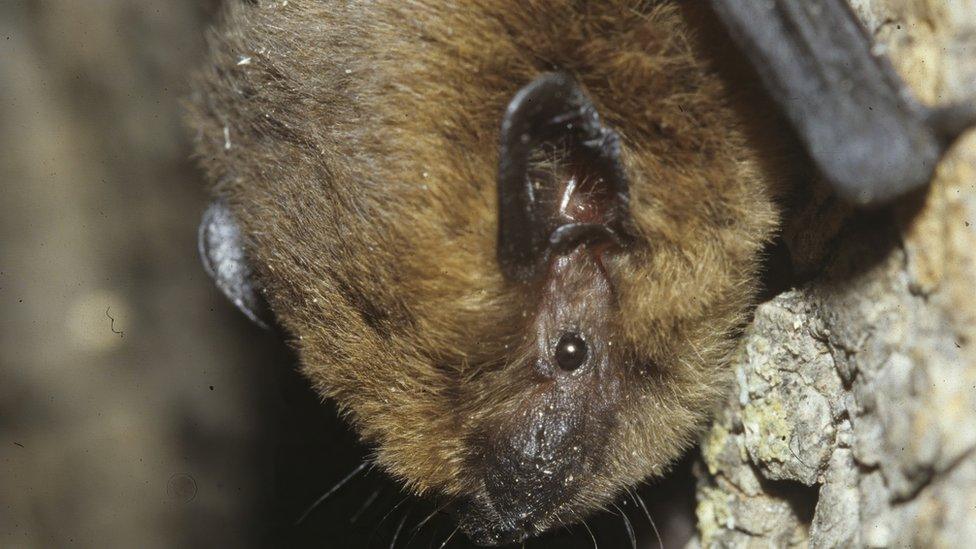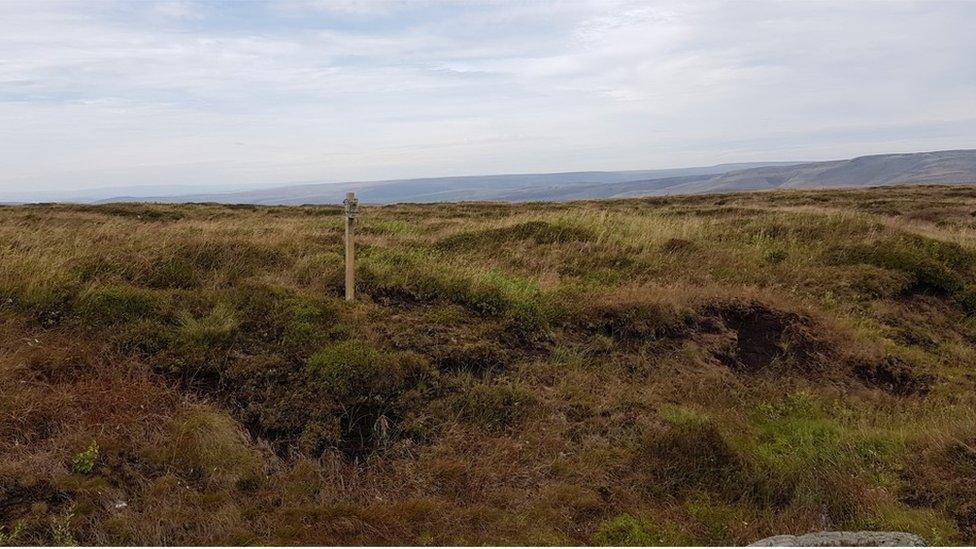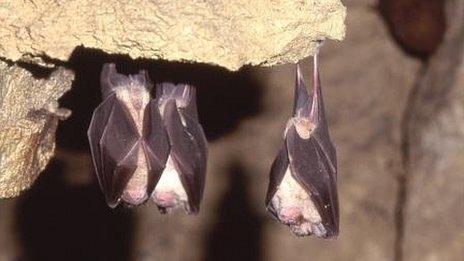Bats recorded at height never seen on Kinder Scout
- Published

The group said the bats had been spotted foraging on Kinder Scout
Five different species of bats have been recorded for the first time in an area of the Peak District where peatland is being restored, a conservation group has said.
The Moors for the Future Partnership is working to reverse degraded blanket bog peatlands in the region.
The group said the bats had been spotted foraging on Kinder Scout at the highest altitude recorded in Derbyshire.
It said the discovery was fantastic.
Five species of bat - soprano pipistrelle, common pipistrelle, brown long-eared bat, noctule, and a Myotis species - were recorded over 14 nights, in an area with no previous records, the group said.
The bats were spotted as part of a joint monitoring programme between the partnership and the Derbyshire Bat Group.
It said the altitude - of 2,011 ft (613m) - was the highest altitude of bats ever recorded in the county, indicating invertebrates were making themselves at home in the restored peatland, attracting foraging bats.
Blanket bog peatlands are home to a wide array of species but are extremely fragile.

The peatlands have been damaged by centuries of pollution
The group said they had been damaged by centuries of pollution, threatening the wildlife communities they support.
Alice Learey, communications and engagement officer, said: "There's actually been five species recorded, which is really fantastic to hear.
"We think their presence is down to the fact that the area they have been recorded on has been restored.
"It's a fantastic sign that the biodiversity is improving."
Head of Moors for the Future Partnership, Chris Dean, said: "Our work started 20 years ago and is far from over.
"However we can already see significant improvements to the habitat in our restoration areas.
"Over the course of the six-year project, the Moors for the Future Partnership has planted nearly three million sphagnum moss plug plants, each planted into the ground by hand."

Follow BBC East Midlands on Facebook, external, on Twitter, external, or on Instagram, external. Send your story ideas to eastmidsnews@bbc.co.uk, external.
Related topics
- Published25 January 2018
